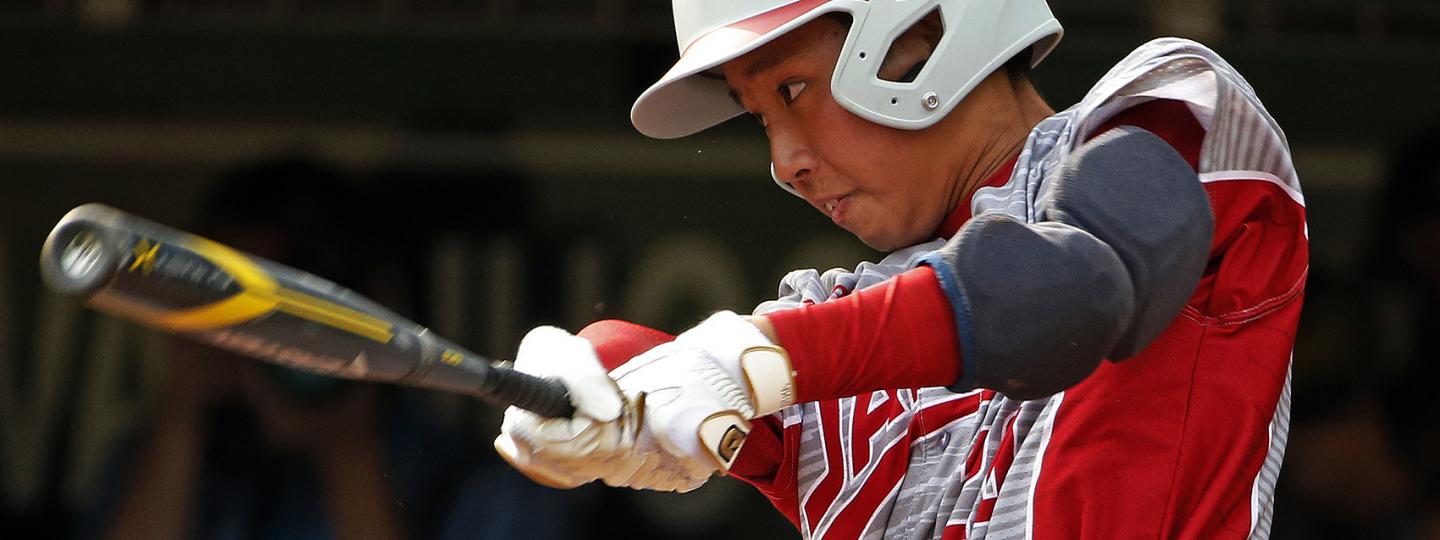
Good morning. Here’s our morning roundup of all the media news you need to know. Want to get this briefing in your inbox every morning? Subscribe here.
Sports provide relief from catastrophes like the recent flooding in Houston. In turn, the lucrative fraud of the Floyd Mayweather-Conor McGregor fight provided relief from the banal late-summer sports journalism monotony of NFL training camps (ACL injuries, quarterback battles), the dog days of baseball and the exhausting search to find half-decent American tennis players to spotlight at the U.S Open.
So thanks to both HBOs “Real Sports” for a superb piece fronted by correspondent Jon Frankel and produced by Nick Dolin on the “youth sports tourism industry” and to Time magazine for Sean Gregory’s “How kids’ sports became a $15 billion industry.”
Even if you’re a product or now part of that universe, you’ll do a double-take over its gilded omnipresence and the double-edged sword of its growth.
Youth sports tourism industry? It’s travel team sports run amok. It rang especially true last night as I sat in Wrigley Field’s faraway final right field row watching elite professional baseball players with a big group from our youth baseball league. It was only Sunday that I dropped off one of the assembled, my eight-year-old son, to a small stadium on Chicago’s Northwest Side early Sunday for a travel baseball tryout. The line to register was long, appeared mostly middle-class White and a precursor to the worlds that HBO and Time detail with provocative cautionary notes.
I asked a New York Times chum from Indiana if he knew of Westfield, Indiana. He recalled it as a sea of farm fields. Well, no more. In the past year it’s been transformed as Westfield enters an industry “fueled by investors who are building huge state-of-the-art playing complexes, and parents who are willing to spend heavily on travel teams in hopes their kids can fulfill their athletic dream.”
Westfield last year built a sports mini-metropolis on 400 acres, with 31 full-size outdoor soccer fields, 26 baseball diamonds and three full-sized soccer fields indoors. It estimates $145 million was spent in and near the area last year by parents and kids who participated in tournaments. Last month alone 400 teams from nationwide with 7,000 players came to Westfield (population 37,000). They don’t think the mayor was nuts anymore.
It follows in many footsteps, notably ESPN, as Time underscores: “The pioneer of this trend is the ESPN Wide World of Sports Complex, which opened in 1997 on the grounds of Disney World in Orlando. The 220-acre venue allows Disney to collect revenue from tournament fees, hotel stays and theme-park tickets, while giving it another way to win the hearts — and future wallets — of its youngest customers. Business is thriving. Wide World of Sports hosted 385,285 athletes in 2016, up 28 percent since 2011.”
HBO’s Frankel, himself a so-called “walk on” (non-scholarship) football player at Syracuse, follows one Virginia family that spends about 30 weekends on the road (one boy baseball player, one girl track athlete). Like many, they may easily spend about $7,500 (and way more) per kid on fees, elite coaching, travel, hotels, etc. Their aim is for the kids to get college sports scholarships and they feel if they don’t get on this fast-moving treadmill, they’ll be left behind. So kids often arise at 5 a.m. to hit the road to tournaments.
It’s the same with fifth-grader Joey Erace, a baseball phenom with a $15,000 baseball hitting cage in his southern New Jersey backyard. He travels around the country playing for different teams, has 24,000 Instagram followers as “Joey Baseball” and, as Time notes conspicuously, has yet to learn cursive.
Millions of Americans are on this treadmill and may mirror a growing gap nationally between the haves and have-nots in many areas. One industry consultant calls sports tourism a $9 billion industry that grew 20 percent last year, “an incredible transformation with massive ripple effects.” Time puts the whole youth sports business at over $15 billion.
So we have “tournacations,” vacations to places like sunny Myrtle Beach, S.C., where there are 18 baseball fields and a 100,000-square foot indoor sports center. Vacations can become treks to sit in metal bleachers and watch kids play sports for days at a time, perhaps not making it to a nearby beach.
And Westfield-like moves are underway in many other places, such as Rocky Mountain, North Carolina, where they’ve just started constructing a 165,000-square-foot indoor complex with eight full basketball courts which can be turned into 16 full volleyball courts. Developers are investing in lodgings and restaurants nearby.
So I returned to pick up my wannabe baseball player in late morning Sunday, having assumed that I’m already a member of a growing travel sports army (mostly via soccer). According to Frankel, that’s not true precisely because many children and parents are being priced out of this market.
Sports participation rates are actually declining. As with education in general, and financial success in later life, many American are being quietly left behind by a new elite that can afford the sports tourism treadmill.
Not all, as Frankel underscored in a subsequent phone chat in which he cautioned against underestimating how ambition and grit can overcome economic circumstances. For sure, he didn’t realize how big a business this has become, even though he’s a parent who’s shepherded kids to lots of games in the New York City area.
And he’s not quite sure about the chicken and egg here. Have parents created this push and others just exploited it? Or did it really come from pro and collegiate leagues, among others, and then had a trickle-down effect? “I’m still not sure who is driving the bus.”
As for driving, our family this Labor Day weekend has a travel soccer tournament in Aurora, Illinois. Or, wait, is it Kenosha, Wisconsin? The self-imposed obligations blend together. If Kenosha, is it too late to find a hotel room for Saturday night?
Fox pulls its own channel
“Rupert Murdoch’s 21st Century Fox Inc. said Tuesday that it stopped broadcasting its Fox News Channel in the U.K., amid the media conglomerate’s $15 billion bid to buy the 61% of British pay-television company Sky PLC that Fox doesn’t already own.” (The Wall Street Journal)
Political motives at play? Not for The Guardian, which reports, “Sources said the decision to stop broadcasting Fox News, which went off air at 4 p.m., was not connected to the takeover bid, arguing that the channel attracted only about 2,000 viewers a day in the UK.”
The fake news challenge for medical journals
A solid Bloomberg Businessweek tale highlights how “Medical Journals Have a Fake News Problem — With help from drug companies, Omics International is making millions as it roils the scientific community with sketchy publications.”
Headline of the day?
“Hey, everyone, please shut up about Melania Trump’s shoes.”(Mashable)
Yup. Typical was a New York Times fashion/quasi-politics analysis so clearly frowning on the shoes. Decent fashion is inevitably a source of unease in Washington, where style is as foreign as legislative courage.
Lester Holt, David Muir, please note
From reporter Chris Ariens:
“RIO DE JANEIRO — There aren’t many TV shows that command half of the available audience. But Globo TV’s national newscast, Jornal Nacional, can draw that level of viewership on any given night, which it did the night of Aug. 21 when we toured the new studio and newsroom of the 48-year-old program.” (Adweek)
“Forty-nine million Brazilians watched the one-hour newscast that night. It airs weeknights at 8:30 p.m in a country that has 66.49 million TV homes. By comparison, 33 million viewers tuned in for the Oscars telecast in the U.S. this year, and the three U.S. network evening newscasts average a combined 22 million viewers a night in a country with 119.6 million TV homes.”
Boo Blue
New Jersey’s NJ.com had the simple desire to list all the New Jerseyans playing Big Ten football. The University of Michigan, whose coach is a prototypical control freak, refused. NJ.com filed a Freedom of Information Act request. It still delayed.
Finally, with the start of the league season 48 hours away, “In response to a Freedom of Information Act request submitted more than three weeks ago by NJ Advance Media — and public criticism from many other media outlets over its initial replies — Michigan provided a list of football players on athletic scholarship.” (NJ.com)
There could be players not on the list, nevertheless. “Michigan noted that ‘information regarding football student-athletes who are receiving non-athletic forms of financial aid is withheld’ pursuant to Michigan FOIA laws that require the school to ‘exempt from disclosure information that would prevent the public body from complying with the Family Educational Rights and Privacy Act’ or ‘information that would constitute an unwarranted invasion of an individual’s privacy.'”
The holes in Facebook’s making nice
Rob Barrett, president of Hearst Newspapers Digital Media, was asked what he wants “Facebook to do to help publishers on ad monetization?” His response:
“In addition to removing likely friction from the subscription effort, FB needs to address the stark fact that the duopoly [Facebook and Google] is squeezing the ad sales model faster than subscriptions can replace it. The various Facebook efforts to provide new tools, like the ones on auto dealership targeting, are scattered across multiple Facebook teams and often (in that autos case, I’m not 100% sure) may just further disintermediate publishers. (Autos dealerships and new players can theoretically just use these tools themselves.)” (Street Fight)
An engaging profile
Elisabeth Kendall studied Arabic and Arabic literature for 20 years, then got bored. She turned to analyzing the poetry of jihadism.
“Today, Kendall — a senior research fellow in Arabic and Islamic Studies at Oxford University — is arguably the world’s foremost expert on jihadist poetry. She can, off-hand, chat about poems written by everyone from Osama Bin Laden to Ayman al-Zawahiri, al-Qaeda’s current leader (Abu Bakr al-Baghdadi, leader of so-called Islamic State, does not write poetry, but did do his PhD thesis on the subject).” (BBC)
Nice addendum
Historian Michael Beschloss found a photo and tweeted, “LBJ launches a tradition in New Orleans after Hurricane Betsy, Sept. 1965, saying, ‘This is your President — I’m here to help you!'”
Ah, in case you were wondering…
“Houston-area ad and PR agencies are among the businesses dealing with the epic storm that has deluged parts of the region with as much as 30 inches of rain since Saturday night. Some agencies remain closed on Monday as the city copes with the havoc wrought by Hurricane Harvey, freeing employees to pitch in on volunteer efforts as rising floodwaters displace thousands of residents, with no immediate end in sight.” (Ad Age)
The morning babble
“Trump & Friends” went heavy with new potential jail penalties for Houston looters and, as put so genteelly by reporter Griff Jenkins, “stopping these criminals that have unleashed the worst humanity has to offer.”
“Morning Joe” was less focused on the target of Fox’s admonitions than, of course, President Trump and his arguably fumbling attempt to express empathy. It went heavy with a Dallas Morning News reporter’s pool reporter that stated, “Reporters heard no mention of the dead, dying of displaced Texans and no expression of sympathy for them. The message was services are coming and Texans will be OK.”
Co-host Joe Scarborough damned with faint praise, saying even if Trump could not express empathy, and was in part motivated by TV ratings, his presence in the disaster areas is an inevitable plus in motivating the state’s rescue apparatus. By and large, though, the show is unceasing in hammering Trump on a variety of unrelated matters, including his pardon of Arizona’s notorious Joe Arpaio.
CNN’s “New Day” spotlighted victims’ rescue stories and one man who lost both his home and 14 pets but survived with a dog named Miracle and is getting by at the Houston Convention Center as workers sort through clothing donations and assess needs. Criticism of Trump’s arguably self-absorbed ways were was as prominent as, say, rival Fox’s breakfast-time segments on fighting terrorism and the nut-job running North Korea.
But Trump’s performance and North Korean missiles were thankfully absent from the Weather Channel whose online efforts are especially strong. “Harvey’s Third Landfall, New Catastrophe” led its extensive, apolitical coverage this morning.
[“Source-poynter”]







